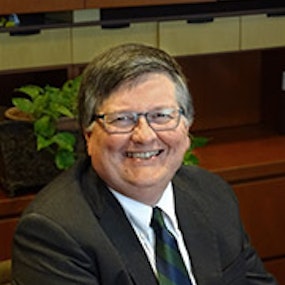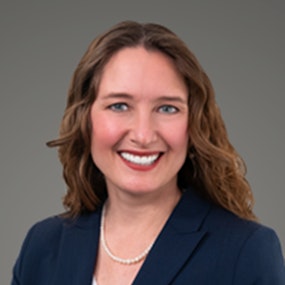ROBERT JOHNSON:
This is the award-winning Public Health Review Morning Edition for Friday, April 5, 2024. I'm Robert Johnson. Now, today's news from the Association of State and Territorial Health Officials.
CLARE COLEMAN:
The most important thing that folks can think about is how to break down the silos that payment has in our healthcare system.
JOHNSON:
Claire Coleman is president and CEO of the National Family Planning and Reproductive Health Association. She says those silos can hinder access to reproductive and sexual health care, today's National Public Health Week topic.
COLEMAN:
The fact is, is that depending on who pays for your health care, do you have commercial insurance? Do you have Medicaid public insurance? Or are you uninsured and seeking subsidized care, you get different access to benefits and you're treated differently.
JOHNSON:
Coleman wants public health leaders to do what they can to eliminate silos, not just when it comes to payment, but also where services are delivered.
COLEMAN:
There's got to be a way for folks to integrate them, think about how we serve people that are we're seeing the same people for different services. And there has to be better ways to break down the silos between us and make sure everyone gets the care they need.
JOHNSON:
Coleman says another concern is that federal funding hasn't kept up with inflation or demand.
COLEMAN:
And that's one of the reasons why state funding has become so important. States are very strapped as well. But every investment that they make in contraception and sexual health care is good for the public health.
JOHNSON:
Our coverage of National Public Health Week continues Monday, we discuss emergency preparedness with Rebecca Adamson at the Kansas Department of Health and Environment, read ASTHO's legislative perspectives on family and reproductive health by clicking the link in the show notes.
Also, Mississippi State Health Officer and ASTHO member, Dr. Daniel Edney, recognizes National Public Health Week thanking the workforce in a video shared on YouTube.
DANIEL EDNEY:
And I just want to voice gratitude for the workforce and Mississippi that's working to achieve the mission at the health department to touch every life, everyday. By protecting advancing the health safety and well being of everyone in Mississippi with no exceptions.
JOHNSON:
You can watch the entire video message using the link in the show notes.
The Texas Tobacco Quitline wins more funding to expand services in the Lone Star State. Texas State Health Commissioner and ASTHO member, Dr. Jennifer Shuford, says the line was established in 2001. And today serves about 10,000 callers a year.
JENNIFER SHUFORD:
So, we knew we had people calling in but we could only offer two weeks of nicotine replacement therapy. We really wanted to expand that to eight weeks of therapy to give people the best chance that they could have at quitting tobacco.
JOHNSON:
Shuford says Texas lawmakers approved her request for more money allocating an extra $2 million over two years,
SHUFORD:
We were able to expand their services to make sure that everybody calls got five coaching sessions and that they could access eight weeks of nicotine replacement treatment.
JOHNSON:
Shuford says call volumes remain high, giving her hope that the extra help will lead to even more quitters.
SHUFORD:
So that makes me excited that if we have just as many people calling and hopefully more and we can offer them better services that we'll see great results across Texas.
JOHNSON:
Finally this morning, new strategies to address rising congenital syphilis rates are the focus of an ASTHO webinar planned next week. O'Keyla Cooper has more.
O'KEYLA COOPER:
Join ASTHO and the Alaska Department of Health for a webinar on Wednesday, April 10 at 3pm Eastern Time, focusing on reducing congenital syphilis through policy initiatives. featuring Dr. Anne Zink and representatives from the Alaska Department of Health and Social Services. Learn how states can implement policies and gain insights from Alaska's experiences. Register now via the link in the show notes.
JOHNSON:
Before we go, a reminder also to follow this newscast on your podcast player and connect with ASTHO on social media. We are on LinkedIn, Twitter, and Facebook.
That'll do it for today. We're back Monday morning with more ASTHO news and information. I'm Robert Johnson. You're listening to the award-winning Public Health Review Morning Edition. Have a great weekend.







